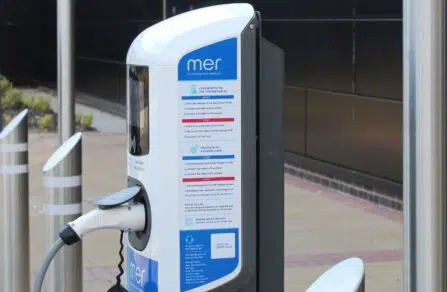
Commercial EV Charging Infrastructure: Business Models for Commercial Landowners
Looking to install EV charging infrastructure? Read our breakdown...
A recent survey commissioned by the respected Society of Motor Manufacturers and Traders (SMMT) found that 57 per cent of van owners are anxious about going electric. The main concern was that they won’t be able to find a charging point when they need it.
We talked to Dan Martin, MD – fleet and workplace charging – to find out what he thought of the concerns.
“There is no doubt that the choice of electric light commercial vehicles (LCVs) is growing with over a third of all new van models now available as an electric or plug-in hybrid. However, despite electric van sales doubling last year, they still only account for around 5 per cent of total van sales.
“This broadly means that the van market is about two years behind that of cars, where EV uptake is closer to one in five. This poses a problem for van operators as they face the same end date for sales of petrol and diesel vehicles – 2035 – as cars but are two years behind car operators on adoption.”
There are still incentives available to help LCV operators make the switch. Buyers currently benefit from the Plug-in Van Grant, providing up to £2,500 for small vans and £5,000 for larger ones. When it comes to charge points there are no longer grants to install home chargers, but businesses can access up to £350 to install workplace charging. Additional benefits include lower running costs and reinforcing your company’s environmental credentials.
“Unfortunately, this is not enough to convince most van owners to switch. SMMT research found that the majority of respondents (88 per cent) felt they would go electric by 2035 but a fifth will defer the decision for up to seven years. More than half of those surveyed (58 per cent) said they might be convinced to buy an EV sooner if there was a greater number of public charging points. This is underpinned by 41 per cent of respondents claiming they had nowhere to charge a vehicle at home or at work.”
According to the SMMT, vans directly support around one in 10 workers in Britain. With more than four million vans on the road, electrifying them all would substantially reduce the UK’s transport-related carbon emissions, while also delivering cleaner air in cities.
“The fleet and delivery market has a huge role to play in supporting the drive to a reduction in carbon emissions but we still have an enormous way to go to convince many drivers that range anxiety is a thing of the past.”
“There’s so much more thought that is required when switching to an electric van fleet. Charging infrastructure plays a huge role in making a success of an electric fleet – and this is often an area that fleet managers and companies themselves have no previous knowledge of.
“When planning a charging infrastructure, it is therefore vital to make sure that companies take vans into account. They sometimes need more space than cars and the charging socket might not be located at the front of the vehicle which will need a rethink about where the chargers needs to be located.
“While larger vans will clearly have bigger batteries than cars, you will probably not need rapid chargers to support them. SMMT data shows that the average range on a single charge of an electric van is now around 150 miles, but only six per cent of van owners surveyed exceeded this distance regularly, while four out of five averaged fewer than 100 miles in a single day. Therefore, a top-up from a standard fast charger should suffice, along with access to charging when the vehicle is not in use – typically overnight.
“If you have fleet or workplace charging points that are not in use overnight, consider renting them out to van owners. With Mer you can set up different tariffs for specific use cases, for example, your staff could charge for free or pay a subsidised rate, while your overnight guests could pay a tariff that includes a small margin for your business. Maximising the use of chargers this way will help accelerate the adoption of electric vans in your area while also delivering a quicker return on investment from your charging infrastructure.”
To talk to one of our team of experts about fleet and workplace charging infrastructure, email [email protected]. You can also find further information on our business pages.

Looking to install EV charging infrastructure? Read our breakdown...

As more industries turn to electricity to accelerate their decarb...

Getting the UK’s charging infrastructure network right is essenti...